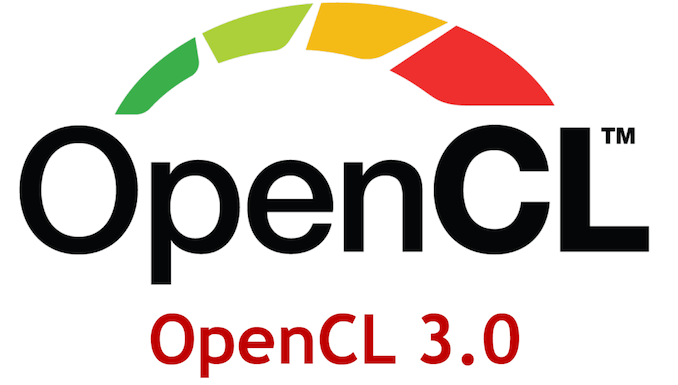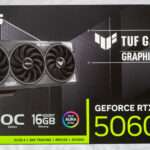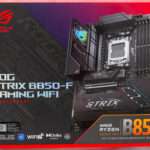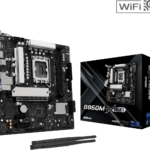
IWOCL – April 27, 2020 – 6:00 AM GMT – Today, The Khronos® Group, an open consortium of industry-leading companies creating advanced interoperability standards, publicly releases the OpenCL™ 3.0 Provisional Specifications. OpenCL 3.0 realigns the OpenCL roadmap to enable developer-requested functionality to be broadly deployed by hardware vendors, and it significantly increases deployment flexibility by empowering conformant OpenCL implementations to focus on functionality relevant to their target markets. OpenCL 3.0 also integrates subgroup functionality into the core specification, ships with a new OpenCL C 3.0 language specification, uses a new unified specification format, and introduces extensions for asynchronous data copies to enable a new class of embedded processors. The provisional OpenCL 3.0 specifications enable the developer community to provide feedback on GitHub before the specifications and conformance tests are finalized.
To cater to a widening diversity of OpenCL devices, OpenCL 3.0 makes all functionality beyond version 1.2 optional. All OpenCL 1.2 applications will continue to run unchanged on any OpenCL 3.0 device. All OpenCL 2.X features are coherently defined in the new unified specification, and current OpenCL 2.X implementations that upgrade to OpenCL 3.0 can continue to ship with their existing functionality with full backwards compatibility. All OpenCL 2.X API features can be queried, and OpenCL C 3.0 adds macros for querying optional language features.
“OpenCL is the most pervasive, cross-vendor, open standard for low-level heterogeneous parallel programming—widely used by applications, libraries, engines, and compilers that need to reach the widest range of diverse processors,” said Neil Trevett, vice president at NVIDIA, president of the Khronos Group and OpenCL Working Group Chair. “OpenCL 2.X delivers significant functionality, but OpenCL 1.2 has proven itself as the baseline needed by all vendors and markets. OpenCL 3.0 integrates tightly organized optionality into the monolithic 2.2 specification, boosting deployment flexibility that will enable OpenCL to raise the bar on pervasively available functionality in future core specifications.”
For C++ kernel development, the OpenCL Working Group has transitioned from the original OpenCL C++ kernel language, defined in OpenCL 2.2, to the ‘C++ for OpenCL’ community, open-source project supported by Clang. C++ for OpenCL provides compatibility with OpenCL C, enables developers to use most C++17 features in OpenCL kernels, and is compatible with any OpenCL 2.X or OpenCL 3.0 implementation that supports SPIR-V™ ingestion.
The Extended Asynchronous Copy and Asynchronous Work Group Copy Fence extensions released alongside OpenCL 3.0 enable efficient, ordered DMA transactions as first class citizens in OpenCL—ideal for Scratch Pad Memory based devices, which require fine-grained control over buffer allocation. These extensions are the first of significant upcoming advances in OpenCL to enhance support for embedded processors.
To accompany today’s release, the OpenCL Working Group has updated its OpenCL Resource Guide to help computing specialists, developers and researchers of all skill levels effectively harness the power of OpenCL. The OpenCL Working Group will continuously evolve the guide and welcomes any feedback on how it can be improved via GitHub.
OpenCL 3.0 at IWOCL
OpenCL Working Group members will be participating in the Khronos Panel Session at the IWOCL / SYCLcon online conference on April 28 at 4 PM GMT. IWOCL / SYCLcon is the leading forum for high-performance computing specialists working with OpenCL, SYCL™, Vulkan® and SPIR-V, and registration is free.
Industry Support for OpenCL 3.0
“In recent years there has been an impressive adoption of OpenCL to drive heterogeneous processing systems within many market segments,” said Andrew Richards, founder and CEO of Codeplay Software. “This update to OpenCL 3.0 brings important flexibility benefits that will allow many evolving industries, from AI and HPC to automotive, to focus on their specific requirements and embrace open standards. Codeplay is excited to enable hardware vendors to support OpenCL 3.0 and to take advantage of the flexibility provided in its ecosystem of software products.”

Mark Butler, vice president of software engineering, Imagination Technologies, says; “With its focus on deployment flexibility, we see OpenCL 3.0 as an excellent step forward in providing critical features for developers, with the ability to add functionality over time. This really is a step forward for the OpenCL ecosystem, allowing developers to write portable applications that depend on widely accepted functionality. Currently shipping GPUs based on the PowerVR Rogue architecture will enjoy a significant feature uplift including SVM, Generic Address Space and Work-group Functions. Upon final release of the specification, Imagination will ship a conformant OpenCL 3.0 implementation with support extending across a wide range of PowerVR GPUs, including our latest offering with IMG A-Series.”

“Intel strongly supports cross-architecture standards being driven across the compute ecosystem such as in OpenCL 3.0 and SYCL,” said Jeff McVeigh, vice president, Intel Architecture, Graphics and Software. “Standards-based, unified programming models will enable efficiency and unleash creativity for our developers with the upcoming release of our new Xe GPU architecture.”
“NVIDIA welcomes OpenCL 3.0’s focus on defining a baseline to enable developer-critical functionality to be widely adopted in future versions of the specification,” said Anshuman Bhat, compute product manager at NVIDIA. “NVIDIA will ship a conformant OpenCL 3.0 when the specification is finalized and we are working to define the Vulkan® interop extension that, together with layered OpenCL implementations, will significantly increase deployment flexibility for OpenCL developers.”

“OpenCL 3.0 is an important step forward in the drive to unlock greater performance and innovation across a broadening range of computing platforms and applications,” said Balaji Calidas, director of engineering at Qualcomm. “The flexible extension model will help our customers and software partners take full advantage of the tremendous potential available in both our existing and future application processors. We are pleased to have had the opportunity to contribute to this specification and we look forward to supporting the final product.”
“Many of our customers want a GPU programming language that runs on all devices, and with growing deployment in edge computing and mobile, this need is increasing,” said Vincent Hindriksen, founder and CEO of Stream HPC. “OpenCL is the only solution for accessing diverse silicon acceleration and many key software stacks use OpenCL/SPIR-V as a backend. We are very happy that OpenCL 3.0 will drive even wider industry adoption, as it reassures our customers that their past and future investments in OpenCL are justified.”

“OpenCL 3.0 has opened up a new chapter for the OpenCL API which has served as the standard GPGPU API during the past 10 years” said Weijin Dai, executive vice president and GM of Intellectual Property Division at VeriSilicon. “With the streamlined OpenCL 3.0 core feature set, OpenCL 3.0 will enable a whole new class of embedded devices to adopt OpenCL API for GPU Compute and ML/AI processing, and it will also pave the way forward for OpenCL to interop or layer with the Vulkan API. VeriSilicon will deploy OpenCL 3.0 implementations quickly on a broad range of our embedded GPU and VIP products to enable our customers to develop new sets of GPGPU/ML/AI applications with the OpenCL 3.0 API.”














